Migrant crisis: Nine key moments from the last year
- Published
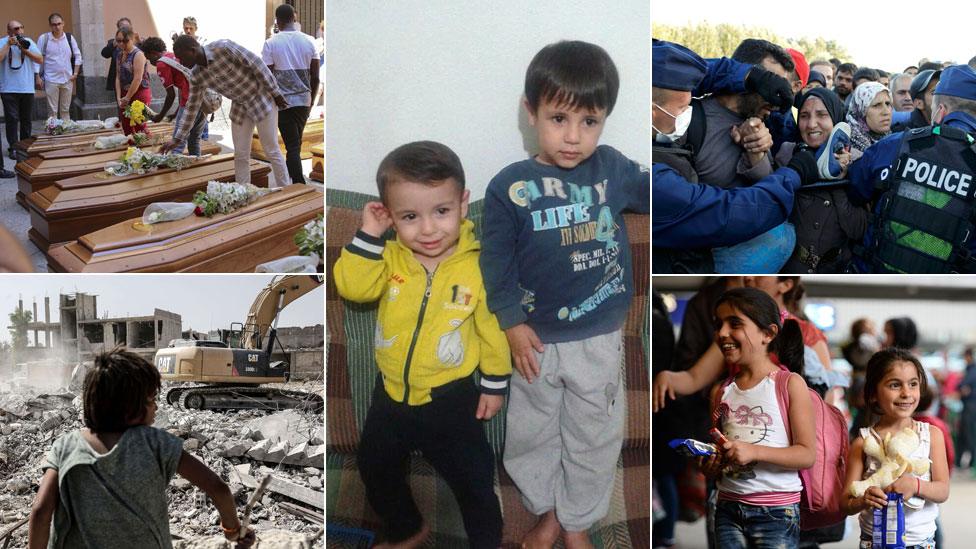
This year, the number of migrants reaching Europe has reached unprecedented levels.
It is a crisis with roots in Africa, the Middle East and Asia, with many people heading from sub-Saharan Africa, Eritrea, Syria, Iraq and Afghanistan to European shores.
Here, we took a look at some of the key moments since September 2014 that have shaped the situation facing Europe today.

September 2014 - The fall of Kobane
Just four days after Islamic State militants entered the Syrian town of Kobane, on the Turkish border, the UN said some 130,000 people had fled.
It was, they said, the largest single movement of people during the Syrian conflict.
The BBC's Rami Ruhayem reported on the dangers facing the town's residents:
Watch: Rami Ruhayem reports from Kobane, a town in the crosshairs
Among those fleeing was the family of Alan Kurdi, a young Syrian boy whose death - and that of his relatives - would spur Europe to action a year later.
Kobane eventually fell into Kurdish hands in January 2015, but only after bitter fighting that left the town in ruins.
Quentin Sommerville described an 'apocalypse' in Kobane after IS was driven out in February
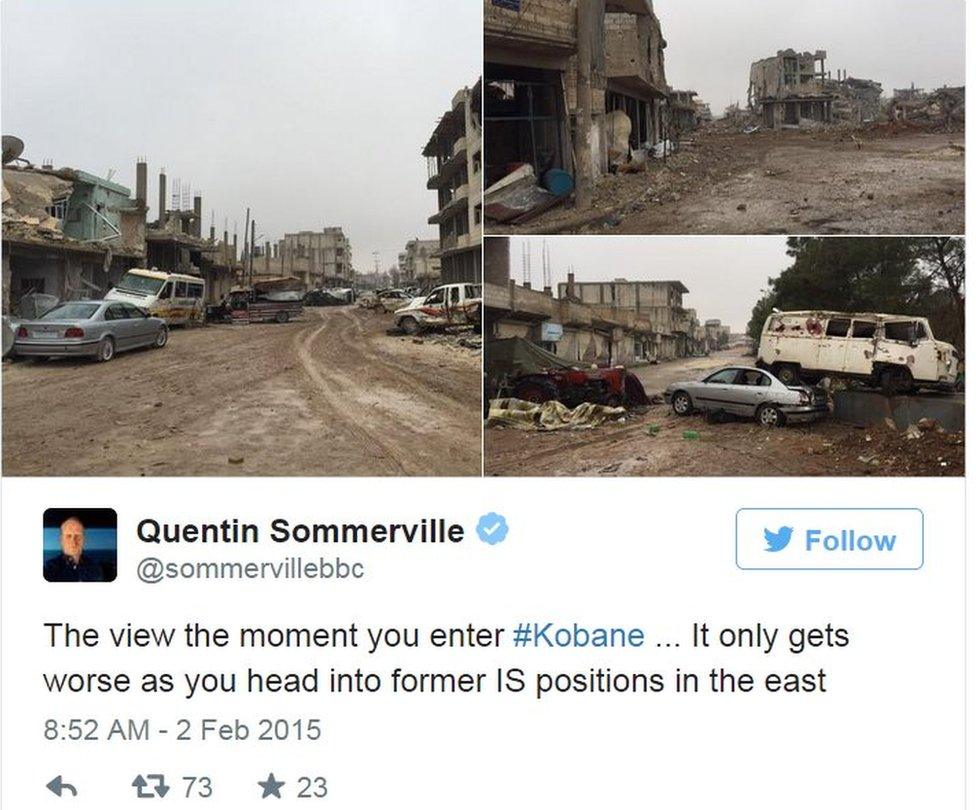

April 2015 - Two boats sink, hundreds die
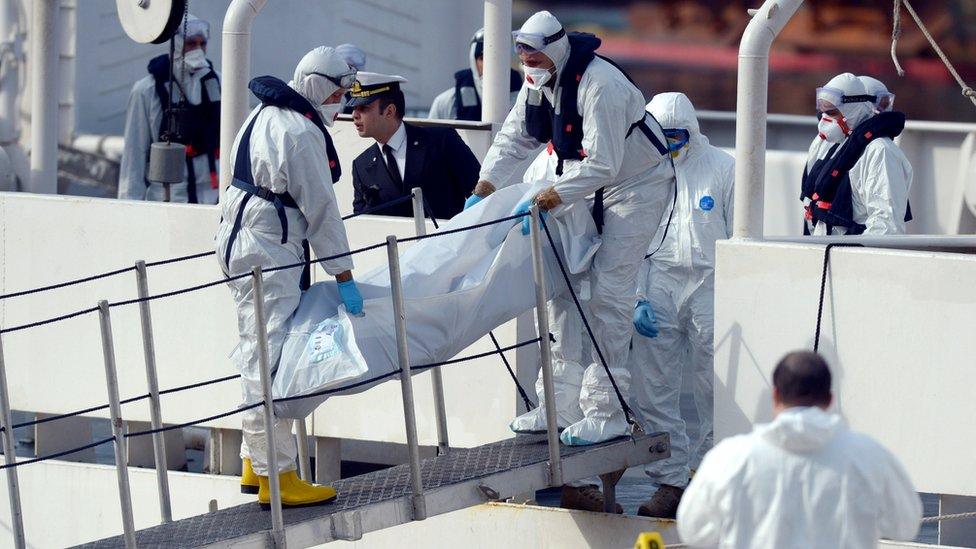
On 12 April, at least 400 people drowned after their boat capsized off the Libyan coast.
A week later, an even bigger tragedy struck - at least 800 people die in another capsizing nearby. Many were below deck as the boat sank, and it was the single largest loss of life recorded.
The BBC's James Reynolds was there as a small group of survivors arrived in Sicily:
James Reynolds reports from Sicily: There is ''clear relief'' amongst the survivors

23 April 2015 - More money, but a struggle for a united front
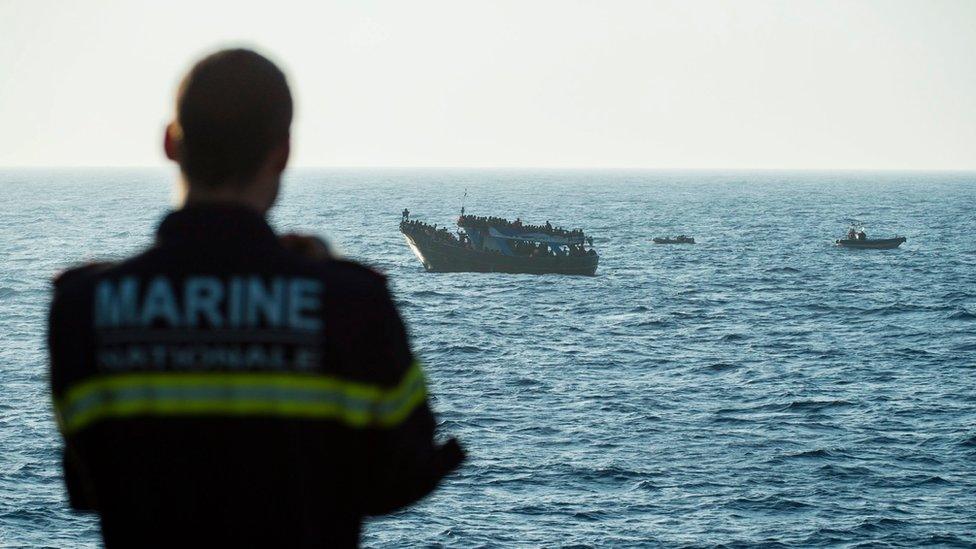
The EU had been criticised for ending its maritime rescue operation, Mare Nostrum, in 2014, and the sinkings created sudden pressure for a reassessment.
But EU member states have long been deeply divided on migration policy. Southern countries have complained that they have not been given enough assistance in dealing with new arrivals, while states that have been more generous towards asylum seekers have called on others to follow their lead.
Following April's disasters, EU foreign policy chief Federica Mogherini made one of many calls for unity:
EU foreign policy chief Federica Mogherini: "This is a European issue... we need to act united"
After much argument, EU leaders agreed to triple the funding of Frontex - the EU's external border force - to some €120m (£86m, $134m).

16 July 2015 - Merkel and the crying refugee
During a televised panel, a Palestinian girl, Reem Sahwil, cried and explained how she wanted to stay in Germany - but the Chancellor, Angela Merkel, replied that the country could not feasibly accept every refugee.
Angela Merkel tried to comfort a young refugee, after explaining that not all migrants could stay
The moment spurred debate about the role of European countries in accepting refugees, as well as what some saw as Mrs Merkel's cold response. Reem Sahwil's stay in Germany was later extended.


21 August 2015 - Germany says it will lift restrictions
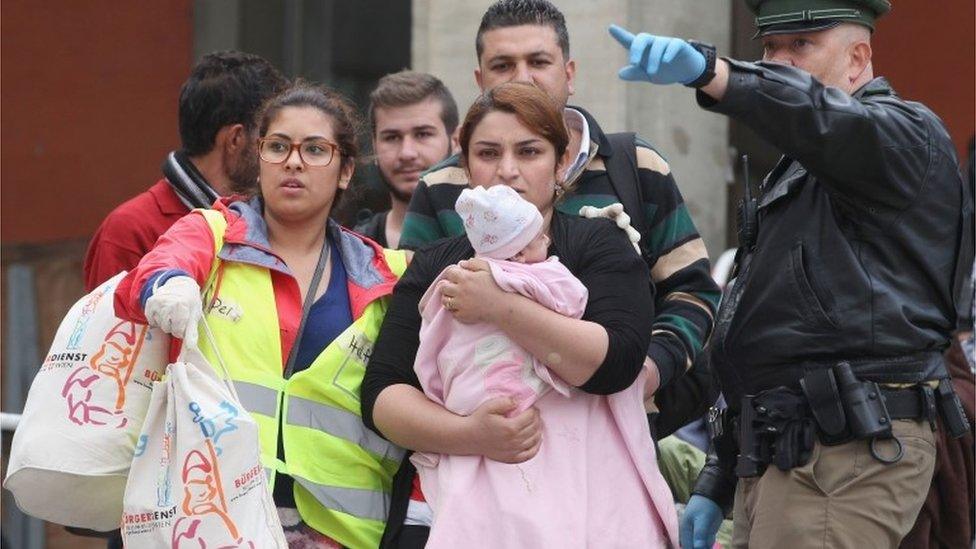
Germany, like all other EU countries, is bound by the Dublin Regulation, which means that anyone seeking asylum in the EU has to lodge their application in the first EU country they enter.
On 21 August, Germany suspended this for Syrians, making it easier for people from them to seek asylum. But the move led to confusion elsewhere in Europe.

28 August 2015 - Migrant numbers overtake 2014
Migrants crossing Med
219,000
in 2014
300,000
in 2015, up to August
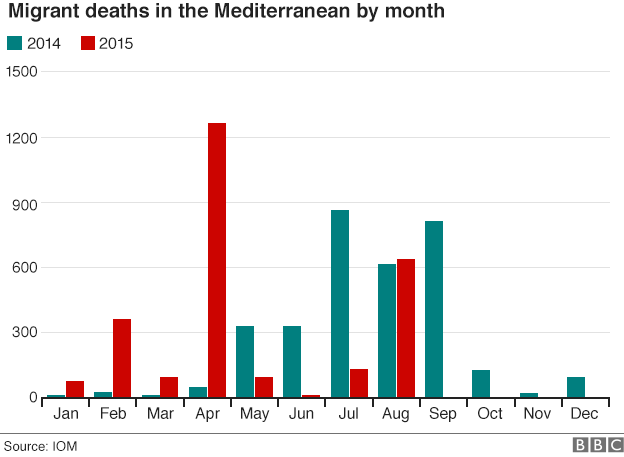

1 September 2015 - Hungary blocks migrants from travelling
When police sealed off a railway station in Budapest to stop migrants travelling north to Germany, Hungary said it was following EU rules.
As numbers built up in Budapest the station doors were reoponed, but international rail services were suspended.
Many decided to walk towards Austria in order to get out of Hungary - including a group that resisted efforts to make them disembark near a migrant reception camp not far from Budapest.
The BBC's Matthew Price filmed thousands of migrants sleeping at the railway station in Budapest
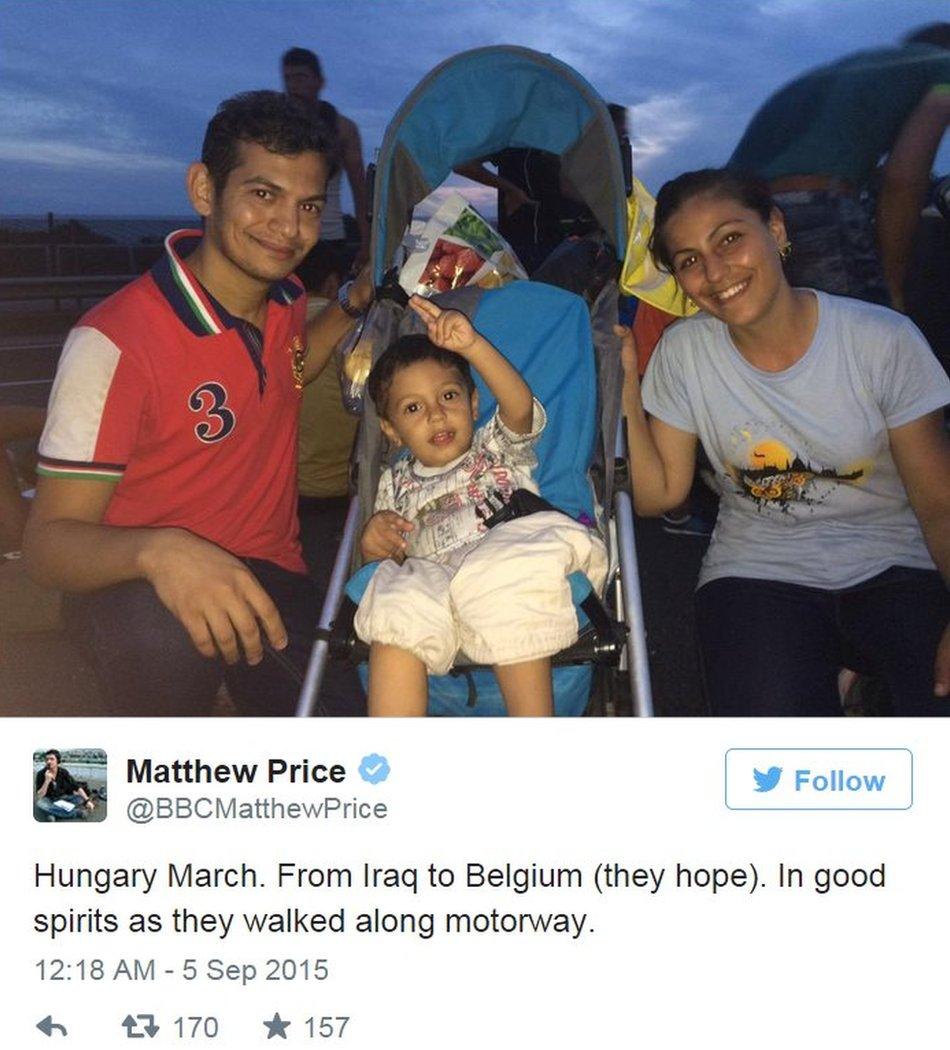

2 September - The death of Alan Kurdi
Alan, 3, and his family left Turkey to try and reach the Greek island of Kos. Their boat overturned and Alan, his five-year-old brother Ghalib and his mother Rehanna, died, along with nine others.
An image of Alan's body on a Turkish beach led to impassioned debates in the press and on social media, with many appealing for European states to take in more migrants.
The BBC's Fergal Keane spoke to Alan Kurdi's father:
Abdullah Kurdi: "My children were the most beautiful children in the world"

5 September 2015 - Migrants arrive in Munich
To help ease the build-up of people in Hungary, Austria and Germany agreed to open their borders.
Thousands headed for Munich, where they received a warm welcome at the station:
There were cheers from the many Germans who had gathered at the station
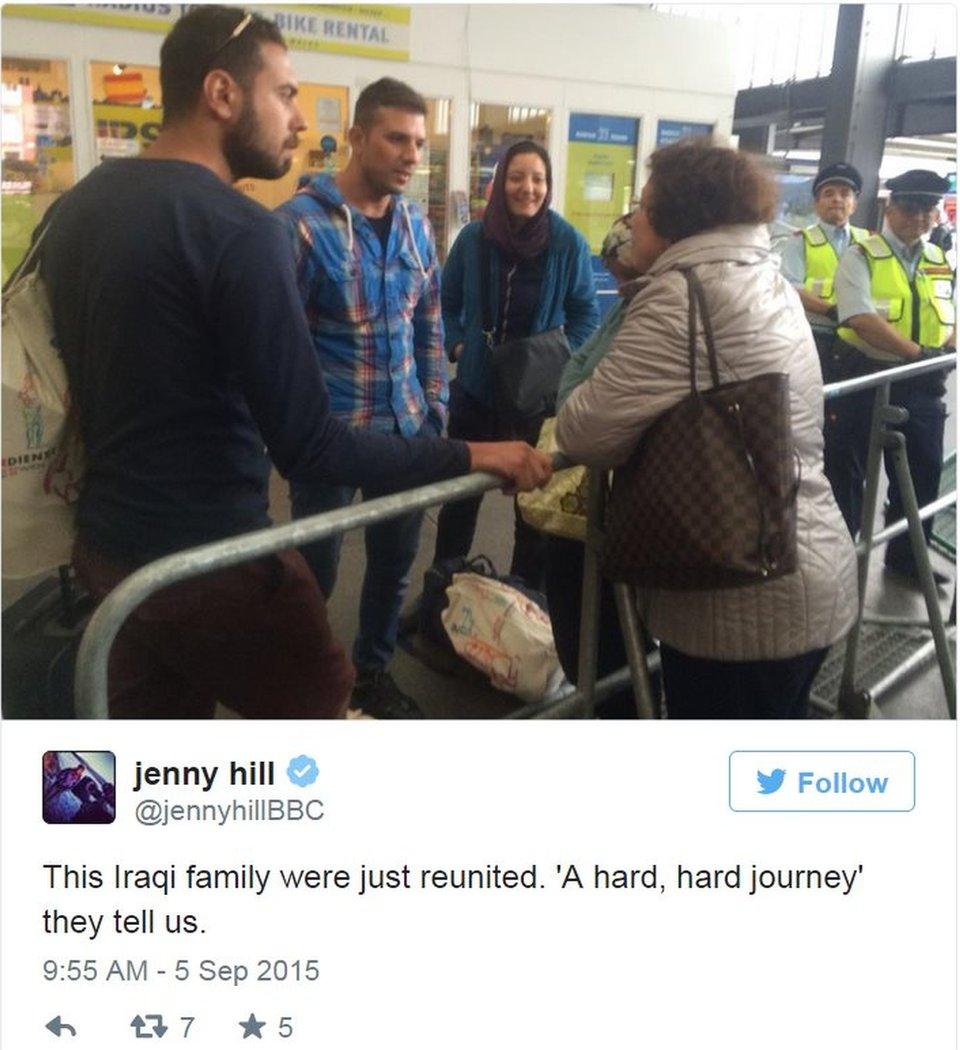
The new arrivals are among 800,000 people expected to claim asylum in Germany this year, but Berlin has asked other EU countries to do more to share the burden.
